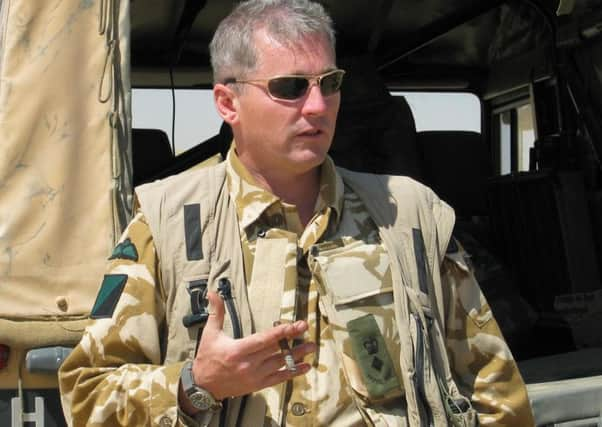Chilcot: Col Tim Collins' dismay at Iraq war blunders


Col Collins, now retired, commanded the Royal Irish Regiment during the regime change mission that cost the lives of 179 British service personnel and civilians between 2003 and 2009.
On Wednesday, a spokesman for some of the bereaved families said their loved ones had died “unnecessarily and without just cause and purpose”.
Advertisement
Hide AdAdvertisement
Hide AdCol Collins rose to prominence in 2003 for a speech he made to his troops they prepared for the invasion.
He spoke passionately of his respect for the Iraqi people and warned his men they entered Iraq as liberators rather than conquerors – and to be “magnanimous in victory”.
Following publication of the report’s findings, the 55-year-old combat veteran recalled how it quickly became clear that “a series of grave strategic errors” was unfolding and that all was not well.
Even when the vast country came under the control of the UK and US forces, there was little cause for celebration.
Advertisement
Hide AdAdvertisement
Hide Ad“The number one issue is that we didn’t learn the lessons of past conflicts - particularly the Second World War and denazification – and that is a big blunder,” he said.
“And not only did we not do it in Iraq, we haven’t done that in Libya either, so we are not learning these lessons.”
Speaking to the News Letter, Mr Collins said the disbanding of Iraqi army was a major mistake as it was supposed to have remained intact to provide a local framework to maintain post-war order.
Having been led to believe this would be the case, the Iraqi soldiers turned on their prospective allies “with a fury you can only imagine”.
Advertisement
Hide AdAdvertisement
Hide AdHe said: “Having done that, we handed the strategic initiative to the Iranians. Who didn’t see that one coming? And they now are in control in the region to the point of keeping us out.”
Mr Collins said there were some revelations in the Chilcot report he was not conscious of at the time.
“What did come out that I wasn’t aware of, which Chilcot has made very clear, was that the decision to go to war was taken at a point where not all of the peaceful solutions had been exhausted,” he said.
“It’s my belief, and I think in future we should look to this, that you should never go to war unless every possible solution has been absolutely exhausted.
Advertisement
Hide AdAdvertisement
Hide Ad“These reports can add value so that we don’t make the mistakes again, but the senior officers have to learn, and in this particular case it may well be that some senior officers have to be brought to task, as well as politicians, to remind people that if you do do that there is consequence.”
Mr Collins, set up the New Century specialist security company after leaving the army, added: “If a 19-year-old steps on a mine that he didn’t have to step on, or if a 21-year-old gets shot dead because of inadequate body armour, when there was body armour available for him, the consequence for that young person is that they have lost their life.”
Mr Collins described some of what took place in Iraq as “shameful,” and said there should be consequences for anyone whose failings led to loss of life.
“In civil life, if people die on your building site [due to negligence] then you are criminally culpable - that should apply to commanders as well.”